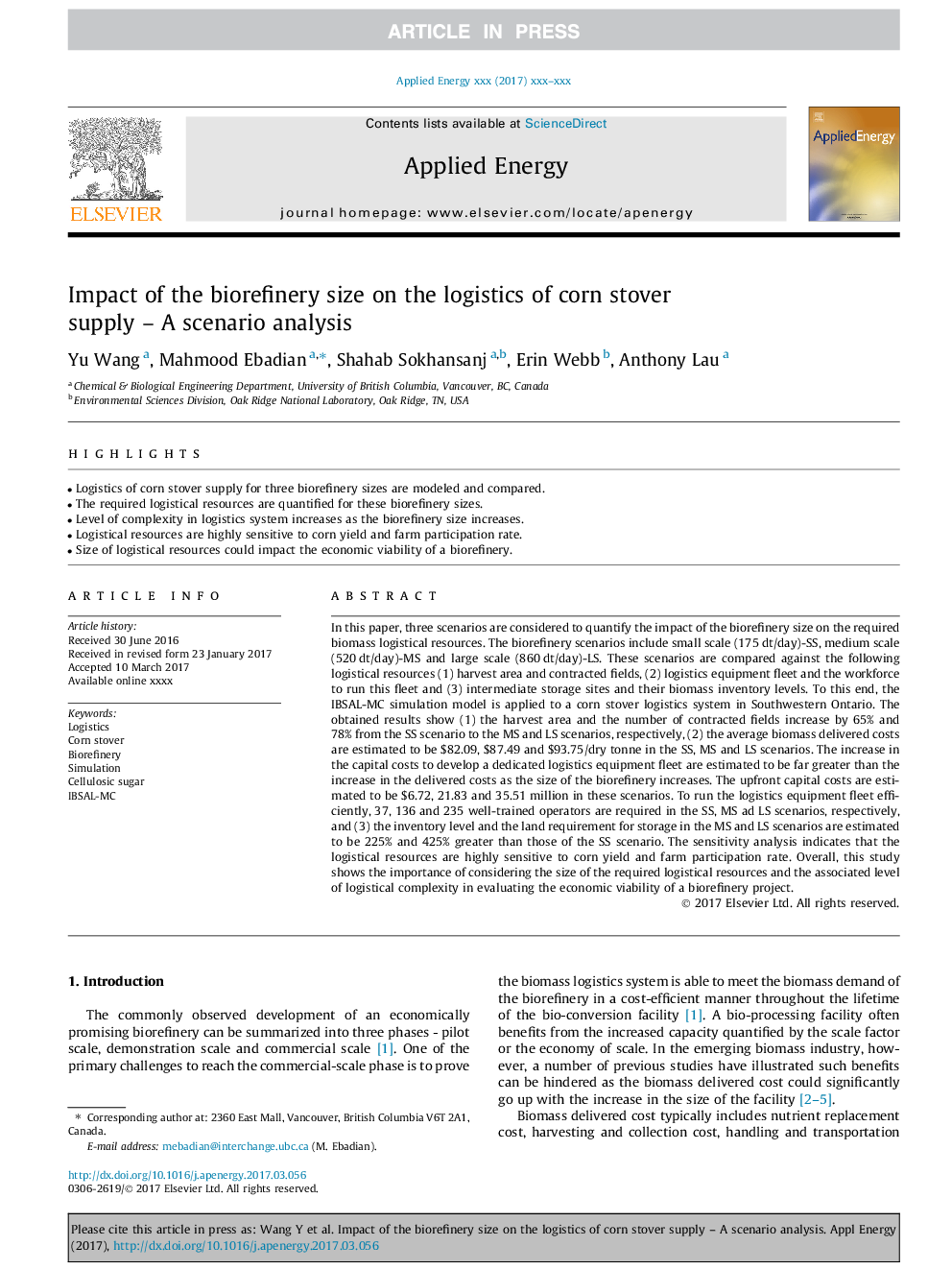| کد مقاله | کد نشریه | سال انتشار | مقاله انگلیسی | نسخه تمام متن |
|---|---|---|---|---|
| 4911100 | 1428092 | 2017 | 17 صفحه PDF | دانلود رایگان |
عنوان انگلیسی مقاله ISI
Impact of the biorefinery size on the logistics of corn stover supply - A scenario analysis
ترجمه فارسی عنوان
تأثیر اندازه بیورفینزر بر لجستیک عرضه ذرت - تجزیه و تحلیل سناریو
دانلود مقاله + سفارش ترجمه
دانلود مقاله ISI انگلیسی
رایگان برای ایرانیان
موضوعات مرتبط
مهندسی و علوم پایه
مهندسی انرژی
مهندسی انرژی و فناوری های برق
چکیده انگلیسی
In this paper, three scenarios are considered to quantify the impact of the biorefinery size on the required biomass logistical resources. The biorefinery scenarios include small scale (175Â dt/day)-SS, medium scale (520Â dt/day)-MS and large scale (860Â dt/day)-LS. These scenarios are compared against the following logistical resources (1) harvest area and contracted fields, (2) logistics equipment fleet and the workforce to run this fleet and (3) intermediate storage sites and their biomass inventory levels. To this end, the IBSAL-MC simulation model is applied to a corn stover logistics system in Southwestern Ontario. The obtained results show (1) the harvest area and the number of contracted fields increase by 65% and 78% from the SS scenario to the MS and LS scenarios, respectively, (2) the average biomass delivered costs are estimated to be $82.09, $87.49 and $93.75/dry tonne in the SS, MS and LS scenarios. The increase in the capital costs to develop a dedicated logistics equipment fleet are estimated to be far greater than the increase in the delivered costs as the size of the biorefinery increases. The upfront capital costs are estimated to be $6.72, 21.83 and 35.51 million in these scenarios. To run the logistics equipment fleet efficiently, 37, 136 and 235 well-trained operators are required in the SS, MS ad LS scenarios, respectively, and (3) the inventory level and the land requirement for storage in the MS and LS scenarios are estimated to be 225% and 425% greater than those of the SS scenario. The sensitivity analysis indicates that the logistical resources are highly sensitive to corn yield and farm participation rate. Overall, this study shows the importance of considering the size of the required logistical resources and the associated level of logistical complexity in evaluating the economic viability of a biorefinery project.
ناشر
Database: Elsevier - ScienceDirect (ساینس دایرکت)
Journal: Applied Energy - Volume 198, 15 July 2017, Pages 360-376
Journal: Applied Energy - Volume 198, 15 July 2017, Pages 360-376
نویسندگان
Yu Wang, Mahmood Ebadian, Shahab Sokhansanj, Erin Webb, Anthony Lau,
